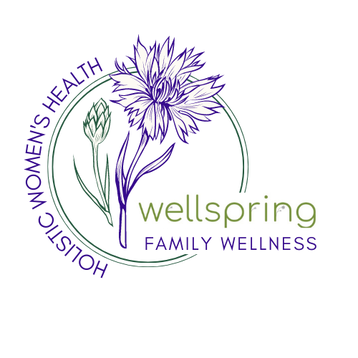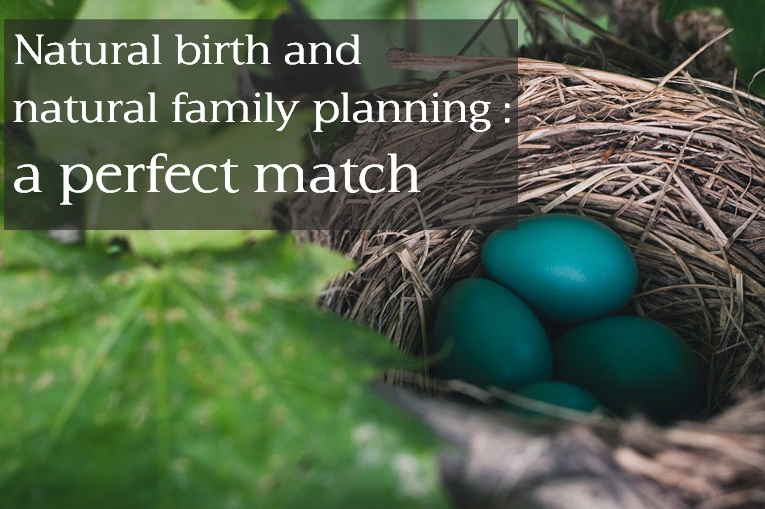|
In honor of Menstrual Hygiene Day on May 28th, I've asked my dear friend Emily Burnett to share her heart behind bringing education, empowerment, and practical menstrual hygiene solutions to girls in need. Before I moved overseas, I don't remember giving thought to how women in developing countries manage their menstrual cycles. Buying tampons and pads seemed like a basic necessity, a non-negotiable, never given a second thought. I hadn't the slightest idea that, for millions of women and girls around the world, sanitary products are often an unaffordable luxury or altogether inaccessible. With my host family in Cote d'Ivoire But at twenty-one years old, I moved from Wisconsin to Cote d’Ivoire and my worldview began to change. I joined an organization called Journey Corps and moved into a host family in a small Ivorian village. There were always at least twelve people under our roof: dad, mom, their three little boys, five teenage nieces, a couple of nephews, and me. The girls became my dearest companions and cultural guides. Over the course of eight months, they taught me the way of life for young, unmarried women in Cote d’Ivoire, a life so different from my own.
Before long I noticed that my sisters didn’t buy sanitary products. Pads were available at some of the little wood-framed shops, but my sisters couldn’t afford them. In fact very few women at all could afford them. So instead they used old cloths, mattress foam, leaves, or straw. These materials led to infections and were ineffective during times of heavy flow, so the girls sometimes skipped school a couple days each month. Their school also wasn’t equipped with clean, private facilities or running water, making it even more difficult for girls to go to class during their periods. Three of my sisters failed their final exams and did not advance to the next grade. Thankfully they had a supportive family who encouraged them to try again. But it was a continuous struggle to keep up with their coursework. After eight months with my host family, I had the chance to travel to a handful of other countries in West Africa, where I heard the same story again and again. It was humbling to acknowledge that my experience of managing menstruation, one that didn’t interrupt my normal life or cause serious health issues, was unimaginable for so many women and girls. I couldn’t ignore this reality.
0 Comments
Natural childbirth is fascinating to me. Even before getting married and starting a family, someone recommended that I watch the documentary The Business of Being Born. I found it very compelling, and it inspired to me to look at women's bodies (and my own) in a new way. Of course I'm so grateful for modern medicine and good doctors to intervene when things go wrong. But I loved the idea that women were designed to give birth and that healthy, low risk pregnancies and births are natural processes and not medical events. Ever since, I've been interested to read about natural childbirth, watch birth videos, and listen to stories of women who've experienced it. I was even blessed enough to experience unmedicated births myself, one of which was a peaceful home water birth. What is it that some of us find so appealing about natural childbirth? Why do we put ourselves through the pain (and sometimes ridicule!) that comes along with choosing to have a baby with little to no medical intervention?
I recently asked a group of natural birth enthusiasts this question, and here are some of their responses: "It's empowering to have faith in your body." "I love feeling the contractions and letting my body do what it knows to do." "I believe women are made for natural birth, perfectly designed to bring our babies into the world with no need to intervene (in most cases)." " After a very traumatic first birth, I knew there was something better. I began reading and researching natural birth, and it blossomed into a passion for all women to experience the beauty of it." "Having a natural birth seemed to be in line with my other life choices- to do things that promote health, confidence, joy, and a respect of nature and my own instinct." The practice of natural family planning (NFP) has numerous benefits. It’s effective, safe, free of side effects, can be used to avoid or achieve pregnancy, works with irregular (or non-existent) cycles, and helps women to manage their own healthcare. When presented with the many reasons to use NFP, many wary women and couples have asked the question, “But is it hard?” There isn’t a quick answer to this question. It really depends on how you look at it. For example: what if I gave you a task that needed to be done every morning, every evening, and even after some meals, every day, for the rest of your life? What if this task required special tools and supplies that needed to be regularly replenished? Would this seem hard? Perhaps, but most of us do this cheerfully without a second thought. I’m talking about brushing your teeth!  When it’s important enough, and the benefits are so clear (as in the case of oral hygiene), adding something extra to your routine doesn’t seem like a big deal. Many people feel the same way about NFP. And surprisingly, once learned, NFP actually requires less time and effort than your average brushing and flossing routine. Practicing the SymptoPro method of NFP takes a typical women just minutes a day, and she can use the information gained in those brief minutes to accomplish so much! If learning how to observe, identify and chart your fertility signs and applying the guidelines seems daunting, I highly recommend finding a certified instructor to train you. Working with a professional will give you piece of mind and eliminate a lot of the guesswork, and soon enough you'll feel like a pro yourself! So the actual charting clearly isn’t so bad. But what about the abstinence? Yes, practicing natural family planning to avoid pregnancy effectively does require a couple to abstain from intercourse during the fertile window of a woman’s cycle. Depending on her experience and her individual cycles, this usually means about 8-12 days per cycle. Certainly, abstinence can be tricky, but when approached with the right mindset, it can actually serve to strengthen a couple's relationship (and even spice things up in the bedroom!) So in my mind, weighing the pros and cons, NFP isn’t hard at all. At some times it requires sacrifice in the form of delayed gratification, but it is more than worth it. NFP provides freedom, peace of mind, increased intimacy, matchless self-knowledge, and so much more. And it's a skill that actually becomes easier, and more enjoyable, with time and practice. So what do you think are the hardest parts of natural family planning? What are some of the benefits?  As a fertility educator and SymptoPro instructor, I'm passionate about helping couples to manage their reproductive health in a safe, effective, and empowering way. But what does that mean, exactly? What role does a fertility educator play in a woman's journey of using natural family planning (NFP)? The first thing a fertility educator can do is to teach you the guidelines of natural family planning. During the main instructional period, you will learn about the function of various hormones, the phases of the menstrual cycle, the signs of fertility, how to observe and chart the signs, and how to apply the guidelines for avoiding (or achieving) pregnancy. Your instructor will work with you closely to make sure you feel confident in the method and can apply the rules correctly. Your NFP instructor will also review your charts. Besides simply learning the guidelines of NFP, you will also be getting to know the unique rhythms of your own cycles. Your instructor will be available long after your initial class series has ended, to answer any questions you may have about observational techniques, your charts, your fertile window, and more. You'll probably have several in person follow up meetings, as well as continuous phone/email support. A fertility educator is also trained to guide you through various reproductive circumstances. Whether you have long, short, or irregular cycles, are premenopausal, coming off of hormonal birth control, breastfeeding, or suffering from gynecological problems, your instructor can teach you to interpret and navigate charts that may look different than what you saw in class. This also means that an instructor can help you throughout your reproductive life, as your circumstances and body changes and matures. She can help you make the switch from trying to conceive, to trying to avoid pregnancy, and back again. Your NFP instructor is someone you can ask anything without fear of embarrassment or funny looks. She is a coach, cheerleader, and a teacher with a wealth of experience. Interesting in learning more about how a fertility educator can help you? Leave a comment below or contact me here! If you are using fertility charting and natural family planning (NFP), you are learning some amazing things about how the female body functions, and about your own cycles in particular. If you’re like me, you are pretty fascinated by the whole thing. And if you are lucky enough to be paired with a science nerd or a guy with a dozen sisters, he's probably totally comfortable with it all. However, if you are like many women, your man may find the consistency of your cervical mucus, cervical position, and daily temperature readings might be less than exciting. In fact, he may find them slightly freaky. If this is the case, the whole issue of deciding when to be intimate (especially if you are avoiding pregnancy) can feel awkward and decidedly unsexy. Couples who are equally involved in the charting process often report a sense of shared responsibility, cooperation, and closeness. It’s one of the strengths of natural family planning. But how do you get a squeamist spouse on board? Every couple has their own style and comfort level, but here are a few ideas. Feel free to add your own!  Learn NFP together. Whether you’re taking an online course, learning in person, or just reading a book, this is actually one I think everyone should do. It’s crucial for both partners to understand what the guidelines of your chosen method are and why they are there. You’ll both know how to identify the fertile window, and which days to avoid if you’re postponing pregnancy. Decide on your intentions. This is vital to practicing natural family planning successfully. Are you avoiding pregnancy? Temporarily postponing? Actively trying to concieve? Not trying, but not avoiding? Have this conversation often; it's important to know where each person is coming from when making day to day decisions about sexual activity. Keep the chart visible. If you’re using a paper chart, put in on your bathroom mirror or on your nightstand. Make sure both of you have access to it and can check it any time. It will also serve as a reminder to chart consistently, and a way to prompt conversation. Though a bit counter-cultural nowadays, some people desire a big family. There are many advantages to having a lot of children; maybe the idea of a house full of little ones fills you with joy and excitement! Perhaps you don't plan to prevent pregnancy, remaining open to as many children as God blesses you with. If this is you, and you've stumbled accross this blog, you may be wondering if learning natural family planning has any merit. After all, you're not interested in avoiding pregnancy, why should you bother learning how to chart your fertility signs? You may be surprised to hear that charting your cycle can have numerous benefits besides limiting family size. Charting your cycle allows you to accurately date your pregnancies When you arrive at your first prenatal appointment, one of the first things your doctor or midwife will likely do is to calculate your due date. This calculation is typically based on an assumed conception date of 14 days after your LMP, or last menstrual period. This can be fairly accurate if you happened to ovulate and concieve around day 14, but many women don't. If your estimated due date is off by a week or two it might not seem like much, but toward the end of your pregnancy it could make a significant impact on care decisions. Charting allows you to pinpoint the brief fertile window in each individual cycle, giving you a more accurate due date. Remember when you and your spouse were newlyweds? You probably spent hours talking, dreaming together, sharing hobbies, and just hanging out. But slowly life creeps in. Maybe it's a busy career (or two!), school, or small children who require constant love and attention. When life gets busy, connecting with the one you love suddenly doesn't come so easily anymore. I know that's where I am right now. I have little baby night owls who just don't get sleepy until after 9pm, a never ending to-do list, and a chronic lack of good quality sleep. All this makes maintaining a close relationship with my husband a little tougher than it used to be. If you're in a similar season, here are some things to keep in mind that might help you connect more deeply with your spouse. Don't be afraid to utilize technology. The old-fashioned girl in me finds this unromantic, at first glance. However, with a clever toddler who understands everything we say, it's often hard to have adult conversation with my husband in person or even over the phone. So we text. Updates about our day, inside jokes, and constant flirting keeps a smile on my face all day long and helps us to feel close, even when we're apart or busy. By the time we see each other in the evening, we already feel like we've shared something that day. Texting (or using email, social media, or whatever) isn't difficult and has great rewards. It takes effort. Just because spending time together isn't as easy as it used to be doesn't mean it can't happen. Romance and connection don't have to be spontaneous. Making an effort to be together can be as simple as waking up fifteen minutes early to share a cup of coffee, or a short visit during someone's lunch break. It's easy to get in a relational rut, but with a little effort and creativity, you can find a dozen ways to squeeze in time together. This also means being intentional about the time you do have. Rather than vegging out in front of Netflix when the kids finally go to bed, try making yourselves a late dinner (frozen pizza?) by candlelight. Talk about your goals for the year. Ask how the other person is doing, and really listen. Learn how to play poker. Laugh together. Make date night happen. Again, this might be cliche relationship advice, but for good reason. Dating often gets forgotten in marriage; after all, why do you need to go on dates when you live together? Besides, when money and time are tight, how can you make it work? Dates don't have to cost money. Pack a picnic and go to the park. Find a local nature trail you've never walked before. Get a classic movie from the library. Even if it means staying up really late to fit it in after the kids go to bed or long shift at work, the relational payoff makes it totally worth it. Your life will go through many changes throughout your marriage, but keeping your relationship strong is a worthwhile investment. What are some other ideas for squeezing in time together when life gets hectic? "Did you just say celebrate?" you might be wondering. Yes I did. Believe it or not, it's possible!
Even if you're on board with the benefits being in touch with your cyclical fertility, enjoying the actual period part of the menstrual cycle can still be a tough pill to swallow. For those who are lucky, bleeding for 3-7 days a month can be a massive inconvenience. And to those who suffer from serious period problems (such as heavy flow and dreadful cramping), it can be absolute misery. So how can we change that? How can we change from seeing our periods as 'the curse' to viewing them as a blessing? Keep reading for some ideas on how to celebrate your period.  One claim I often come across in the fertility charting world is that "natural family planning benefits marriages". But if you know anything about natural family planning (NFP), you know that it involves *gasp* abstinence. How on earth can a practice that prescribes periodically staying away from each other possibly help your relationship? I'm glad you asked. In my time training, teaching, and networking with other NFP users and professionals, I've come across many examples of how NFP can benefit relationships. Here are just a few: 1. Increases communication In order for NFP to be effective (whether you are preventing or achieving pregnancy), it's essential for the couple communicate well about a number of intimate issues. Not only will they be discussing a woman's fertility observations (i.e., mucus!), but it's important for them to be able to talk about their desires, frustrations, shared goals, concerns, and dreams. Whether you are pros at communication, or need to improve in that area, practicing NFP is a great way to get in the habit of discussing important, intimate issues on a consistent basis. 2. Promotes understanding Women are cyclical creatures, meaning our hormones rise and fall according to a unique monthly pattern. Unfortunately, society has done its best to shroud the female cycle in mystery, which is bad news for husbands everywhere. When a couple tracks a woman's cycle, they can better understand the woman's changing moods, energy levels and desires, making it a lot easier to get along. You may actually find you appreciate the cycle! 3. Supports emotional health Women have long known that hormonal birth control messes with our moods and lowers libido. Now, a recent study shows that contraceptives are linked to depression. Thankfully, a couple wishing to avoid pregnancy can avoid the Pill and use NFP instead. 4. Encourages courtship When a couple is avoiding pregnancy, natural family planning requires abstinence during a woman's brief fertile window every month. For a couple used to unlimited sex this might take some adjustment - however, many couples find that periodic abstinence builds a 'courtship and honeymoon' aspect into each cycle. After a week or so without sex, the end of the fertile window is often a time of renewed excitement and romance. 5. Builds intimacy In addition to the creating an atmosphere of courtship in a relationship, using NFP means that a couple never has to use condoms or any other barrier methods. In addition, there is a special closeness that comes from the teamwork and cooperation that NFP relies on, which brings us to the next point. 6. Shared responsibility NFP is unique as a form of pregnancy prevention because it requires both the man and the woman to assume responsibility. In order for NFP to be effective, both people have to understand the meaning of the woman's fertility chart and agree to follow the guidelines. It's a method of cooperation in every aspect: if the couple decided to have sex on a 'risky' day (still in the woman's fertile window), it's a mutual decision with both parties accepting the possibility of pregnancy. While periodic abstinence can have it's own frustrations, natural family planning has the potential to be a wonderful, relationship building practice. Find out how to learn to chart your own cycle today! Originally published by the Guiding Star Project.
Trauma is something none of us likes to think about, but is tragically common. The road to healing can be long and winding, and as unique as the person walking it. The following is not a prescription for everyone, it is simply my story. As an abuse survivor, I have had a complicated relationship with my body from an early age. See, besides the hurt, shame, and fear that the abuse caused, it also sent me some pretty clear messages. Abuse told me: My body is not my own. My body exists to be used and abused by others. My feelings don’t matter. My body has betrayed me before, and will betray me again. My body is a tool used to hurt me. I am voiceless. Some of these messages were easily identifiable; others are subtle and have taken me years to chip away. They are messages deeply ingrained and seemingly confirmed by repeated experiences. I have lived these lies. They have shaped me. It makes sense that truth must be experienced in a similar way before it begins to make an impact on a wounded heart and psyche. First and foremost, a relationship with the Living God who loves me and redeems me is the greatest source of healing! Engaging in healthy relationships has been another great blessing. But perhaps the most unexpected balm of healing on my journey has been practicing natural family planning. Sound strange? Stay with me, I’ll explain. Natural family planning is the practice of avoiding or achieving pregnancy using knowledge of a woman’s cycle. It involves learning to observe and chart a woman’s signs of fertility in order to identify the short window of time in each month when it’s possible for pregnancy to occur. A couple can then use this knowledge to either abstain or come together during the fertile time, depending on their family planning intention. NFP is quite simple, but it’s not always easy. It requires communication, unity, cooperation, trust, self-control, delayed gratification, teamwork, and a desire to honor the other person. Contrary to abuse, the practice of natural family planning has taught me: My body is my own, a gift to lovingly give and a means to lovingly receive. My body exists to honor God, myself and others. My feelings matter. My body is trustworthy. My body is beautiful, a vessel of life and love, and a part of my being. I have a voice, and my voice is both heard and respected. NFP has gently guided me as I learn to appreciate my body. Now when I give of myself, I feel empowered and loving, not used and depleted. I feel connected with my created design. This has spread to areas of my life beyond sexuality, as I learn to speak my heart with confidence, and to tenderly and gladly serve others. Healing is a journey, and probably one that will never be complete in this lifetime. But I am deeply grateful to have come this far. Other than healthy relationships and deep faith, I think that natural family planning has helped me more than anything else. I share this in hopes that someone will find NFP to be the graceful balm and patient teacher that it has been to me. |
For updates, new articles, upcoming events, and information about fertility, healthy relationships, and natural family planning, sign up for the newsletter below:
Categories
All
|
Wellspring Family Wellness
[email protected]
2024
This site and associated social media may contain affiliate links from which I earn a small commission
[email protected]
2024
This site and associated social media may contain affiliate links from which I earn a small commission







